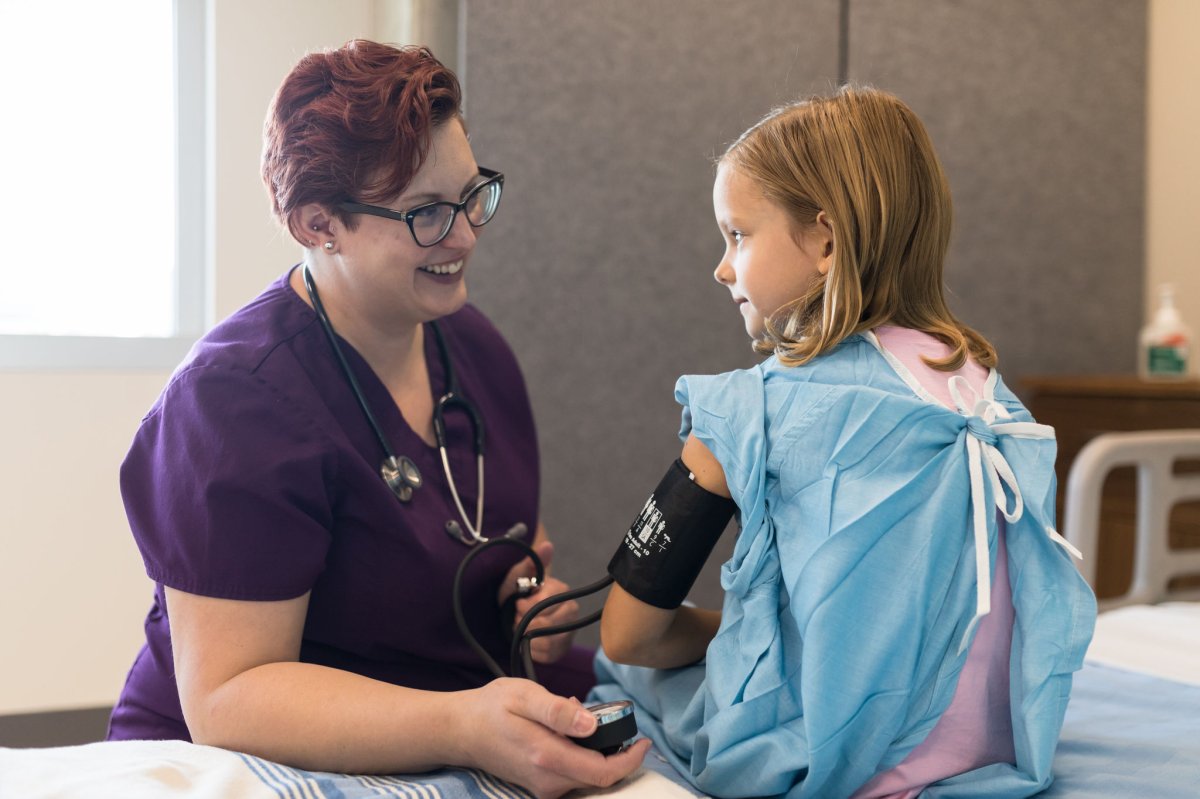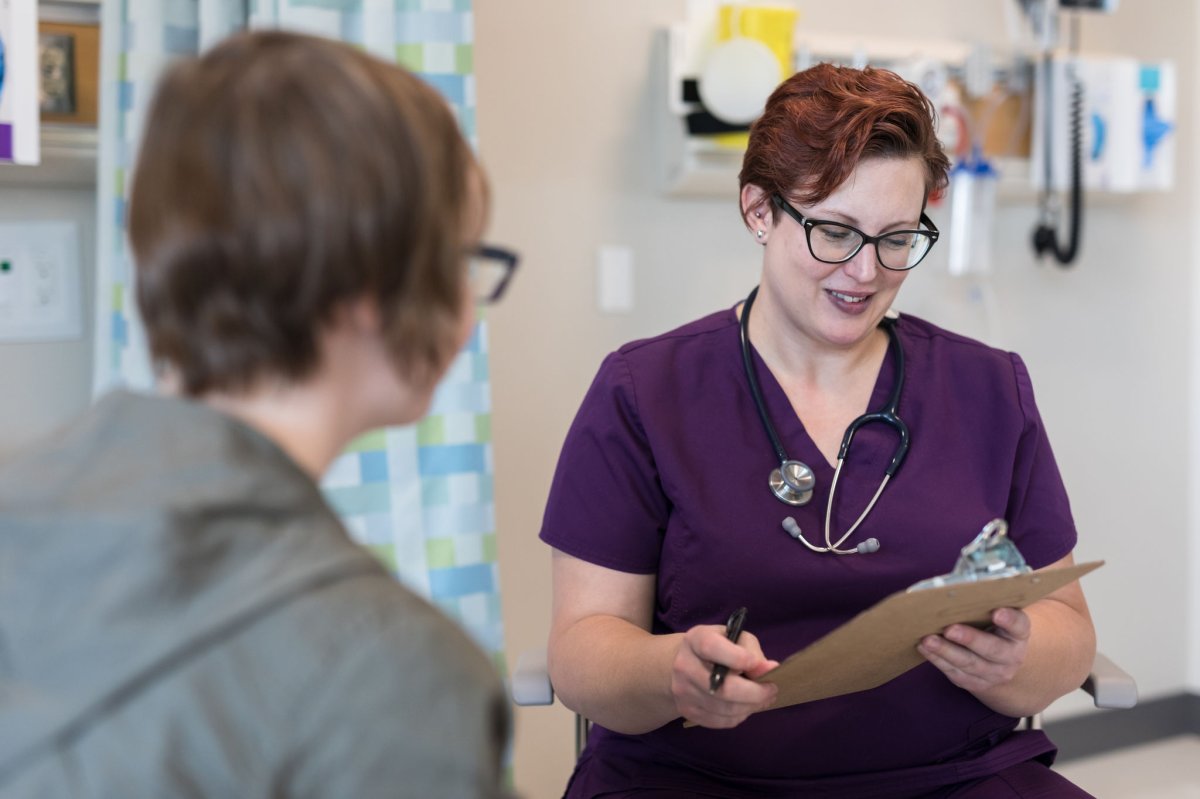Kirsty Byers never thought she would become a nurse. But all of that changed when her daughter, who was born nine-weeks premature, became a patient of NICU nurses in an Alberta hospital.

Soon after, she set out to become a licensed practical nurse (LPN). That was 12 years ago.
Byers, like other LPNs in Alberta, now has a key role to play in ensuring compassionate and competent care while focusing directly on patient and family needs.
“LPNs are valued and progressive members of the healthcare system and contribute to the delivery of ethical and safe care that positively impacts the health journey of Albertans,” says Glenda Tarnowski, director of professional practice for the College of Licensed Practical Nurses of Alberta.
But perhaps you didn’t know all the ways that LPNs can be a patient’s best ally in their medical journey. Here are a few you haven’t heard of.
“Time is always limited in our job, but we can make those relationships and have a good client-nursing relationship where they feel comfortable,” says Byers.
- LPNs are trained to work in different settings
LPNs are educated to work in many different areas, including surgery, pediatrics and orthopedics, to name a few.
Byers says her practicum allowed her to experience many different fields of medicine. She worked in surgery, assisted with stroke patients and worked in an orthopedic clinic. (LPNs are registered after a two-year diploma course which includes theory, clinical training and a national registration exam.)
“You kind of get a feel for lots of different areas.” These experiences ultimately helped her find the areas of work that suited her interests and talent. Byers now works in a busy ER and in a private clinic and says she thrives on the activity.
Many may not be aware that LPNs not only work in healthcare teams within the hospital but also in other settings, says Tarnowski.
“LPNs provide care across the health system in a wide range of practice areas including acute care, seniors’ health and wellness, community primary care clinics, long-term and supportive living occupational health and safety, public health, education and leadership.”
- Patient-centred care is key to the LPN role
LPNs are educated to follow a patient-centred care philosophy, says Tarnowski. It’s a model of thought based on two-way communication between a healthcare professional and the patient. It ensures nurses share information, act as advocates and build relationships where the patient is central to the decision making related to their care journey.
In some instances, Byers works in areas with large Indigenous populations. She says building relationships with some patients means recognizing that they may require spiritual care in addition to routine treatment. LPNs can ensure that this is part of the care process.
Byers says this type of patient-centred care helps build trust with patients and in turn, they feel more comfortable bringing up other issues they may not have otherwise. This only improves the care they receive, she says.
“Time is always limited in our job, but we can make those relationships and have a good client-nursing relationship where they feel comfortable.”
This relationships ensures another pillar of LPN work— patient safety.
In a busy clinic, that might mean an LPN is the one person who asks the right questions that could lead to a better outcome for a patient.
For example, if a person is treated for abdominal pain regularly to no resolve, an LPN’s relationship with that person might allow him or her to dig deeper and investigate alternative causes.
- LPNs do their work as part of the healthcare team
LPNs contribute tocomprehensive patient care in collaboration with doctors, the nursing team, support staff and other healthcare professionals to support decision-making, says Tarnowski.
“The whole team works together to provide the best patient care for the person we are assigned to,” Byers says. “We all have a role to play in that patient’s care.”
Working in a team ensures that nothing about a patient’s care is missed, says Byers. So if she notices that a person did not get physical therapy on a particular day, for example, she looks into why that was the case.
Was it because there was a scheduling conflict with the therapist? Was the patient not feeling up to it? “All of those things get communicated. As a team, we all have a task.”
- LPNs participate in ongoing education
Melanie Therrien, registrar of the CLPNA, says LPNs must participate in the Continuing Competence Program to “assist in ensuring they remain current in their practice.” LPNs can take a variety of online self-study courses and videos through the Study with the CLPNA website.
- LPNs keep up with change
The LPN profession is constantly evolving to meet changing needs of the healthcare system and patients, and ongoing research is part of its mandate. LPNs are educated on many new technologies, procedures and equipment and can specialize in specific areas such as orthopedics by taking advanced education courses.
Byers says she is thrilled by her choice of career.
“Growing up, I never thought I’d be a nurse, and then after I had my daughter I thought, ‘Why didn’t I do this sooner? It is absolutely my calling.’”
To learn more about how LPNs are regulated to ensure public protection visit the College of Licensed Practical Nurses of Alberta.



